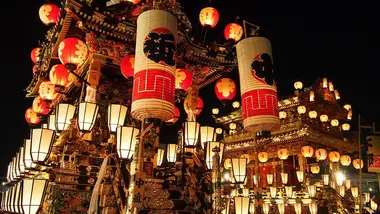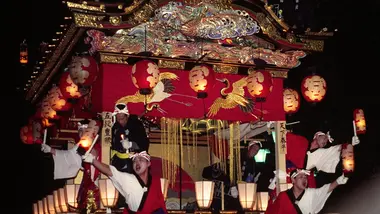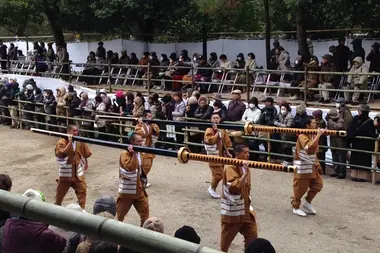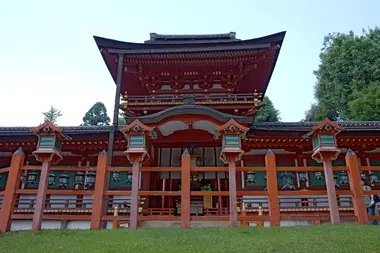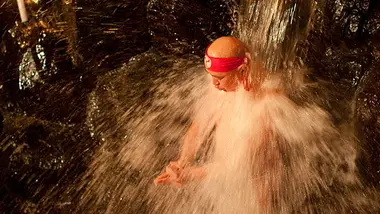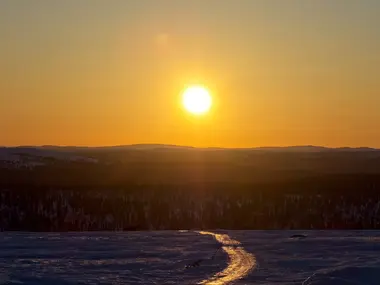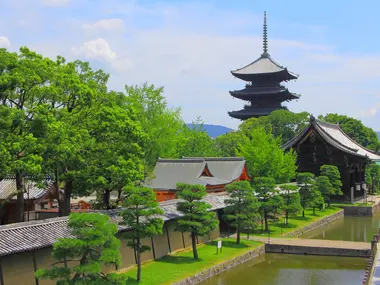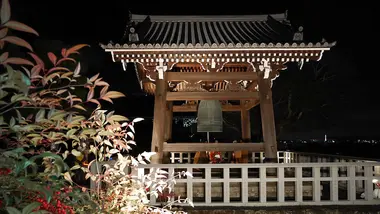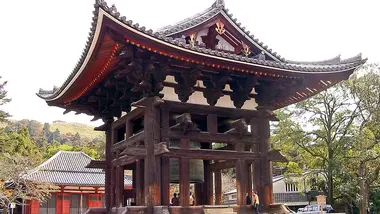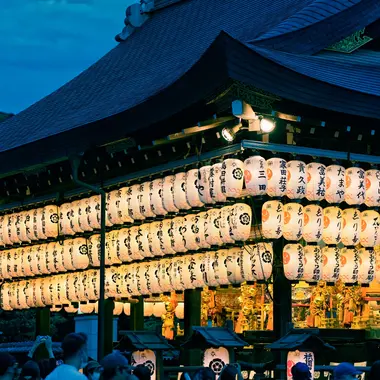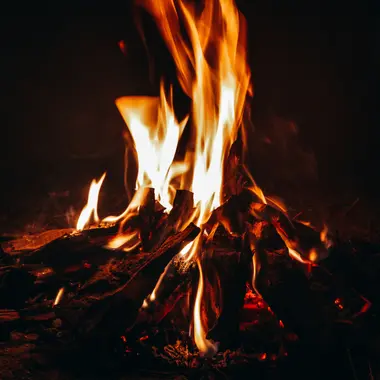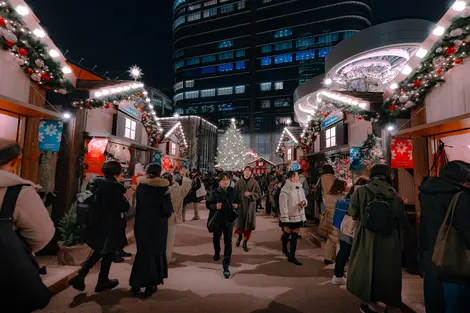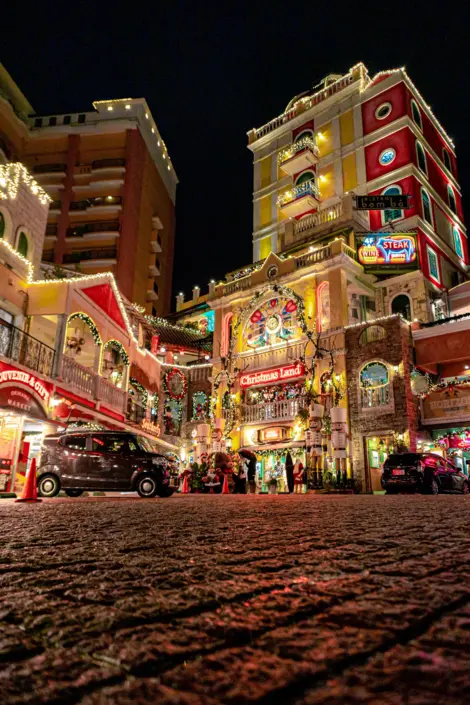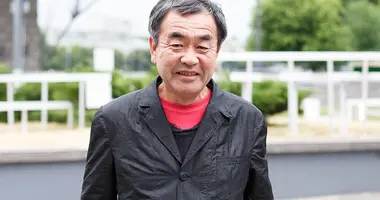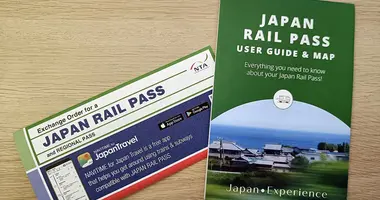Japan Festivals - December
A month of cultural celebrations
December in Japan is a magical time when the transition to winter is marked by events steeped in ancient traditions and modern celebrations. This month is synonymous with purification, family gatherings and reflection on the past year, while welcoming the coming year with rituals that honor the harmony between man and nature.
Chichibu Yomatsuri
Date : December 2-3
Place : Chichibu, Saitama
It's one of the most famous events of December. This great night-time festival, which dates back three centuries, is considered one of Japan's three most famous float festivals and has been recognized as a UNESCO intangible cultural heritage site.
Akou Gishisai
Date : December 14
Place : Tokyo
This festival pays tribute to the 47 ronin, legendary samurai who symbolize loyalty and honor. The event is held at Sengaku-ji, the temple where these warriors are laid to rest, with solemn ceremonies, processions in traditional costumes and offerings.
Kasuga Wakamiya On matsuri
Date : December 15-18
Place : Kasuga Taisha, Nara
It's a traditional event marking the end of the year. The festival features sacred dances, colorful processions and ancient rituals to pray for peace and prosperity. It offers a fascinating immersion in the elegance of classical Japanese culture. December 17 is the main day.
Ikenoue Misogi Festival
Date : Second Saturday in December
Location: Kuzukake Shrine, Gifu
The Ikenoue Misogi Festival is a Shinto purification ritual in which participants immerse themselves in icy water to symbolize spiritual renewal. This festival blends faith and tradition, attracting the faithful and the curious every year.
Tōji Matsuri
Date : Around December 21 or 22 (winter solstice)
Location : Anahachimangu Shrine in Tokyo ; Issan Shrine in Saitama
Touji Matsuri is celebrated on the winter solstice, the shortest day of the year. This day is associated with purification rituals and spiritual preparation for the coming year. Participants eat pumpkins (kabocha), a food symbolizing good luck and health, often prepared in traditional dishes such as itokoni. In shrines such as Issan Shrine in Saitama, purification ceremonies are accompanied by rituals such as hi-watari (fire-walking), where believers walk over embers to purify themselves spiritually.
Joya no Kane (The year-end bell)
Date: December 31st
Location: Anywhere in Japan
Joya no Kane is a ritual marking the end of the year in Buddhist temples across Japan. At midnight on December 31, the temple bell is struck 108 times to eliminate human desires and imperfections, symbolizing the purification of the soul before the New Year. This ritual takes place in many temples across the country, including those in major cities such as Tokyo, Kyoto and Kamakura.
Chinka-sai
Date: December 31st
Location: Itsukushima Shrine, Hiroshima
Spectacular ritual at the Kumano Nachi Taisha shrine, where giant torches purify the premises. This festival honors the protective spirits of fire.
Okera-mairi
Date: December 31st
Location: Yasaka-jinja Shrine, Kyoto
Ceremony at Yasaka Shrine, where sacred flames symbolize purification and renewal. Visitors bring embers to bless their homes.
Although matsuri are traditional celebrations deeply rooted in Japanese culture, other events enrich the December festivities.
Fukuoka Christmas Market
Date: Early December to late December
Location: Fukuoka, Kyushu
The Fukuoka Christmas Market, inspired by European markets, takes place in Ohori Park throughout December. It features handicrafts, festive decorations and culinary specialties from all over Europe and Japan. It's a great way to celebrate Christmas in Fukuoka, with illuminations, live music and a warm atmosphere.
Hagoita Ichi
Date: December 17- 19
Location: Sensoji Temple, Tokyo
An annual market selling hagoita, decorative wooden paddles decorated with figures such as kabuki actors, popular celebrities and sumo wrestlers. Hagoita also refers to a wooden bat used to play hanetsuki, a traditional game similar to badminton, but the ones sold at the fair are purely decorative and are good luck charms for the new year.
Shimai Tenjin
Date: December 25
Location: Kitano Tenmangu Shrine, Kyoto Prefecture
The final market of the year at the shrine with stalls selling food, second-hand kimono and much more. The monthly market is usually called Tenjin-san’s Festival and is held on the 25th of each month.
December in Japan is a magical month where ancient traditions mingle with modern celebrations. December offers a unique opportunity to discover Japan from another angle. Whether you're in Tokyo, Kyoto, Nara or other cities, these festivals will allow you to fully experience the Japanese spirit at the end of the year.

